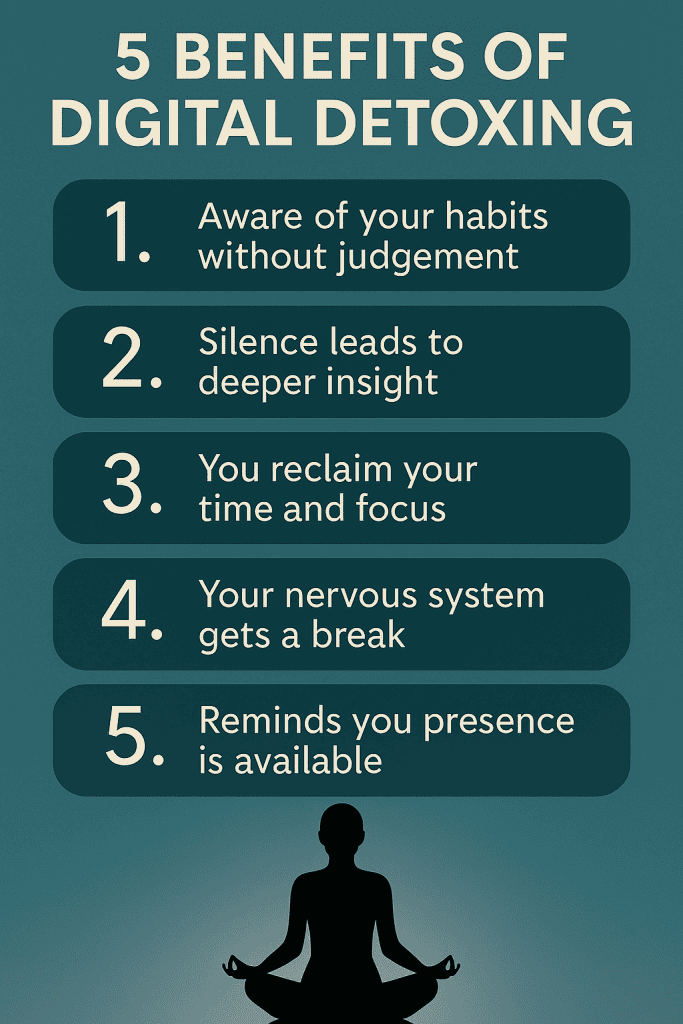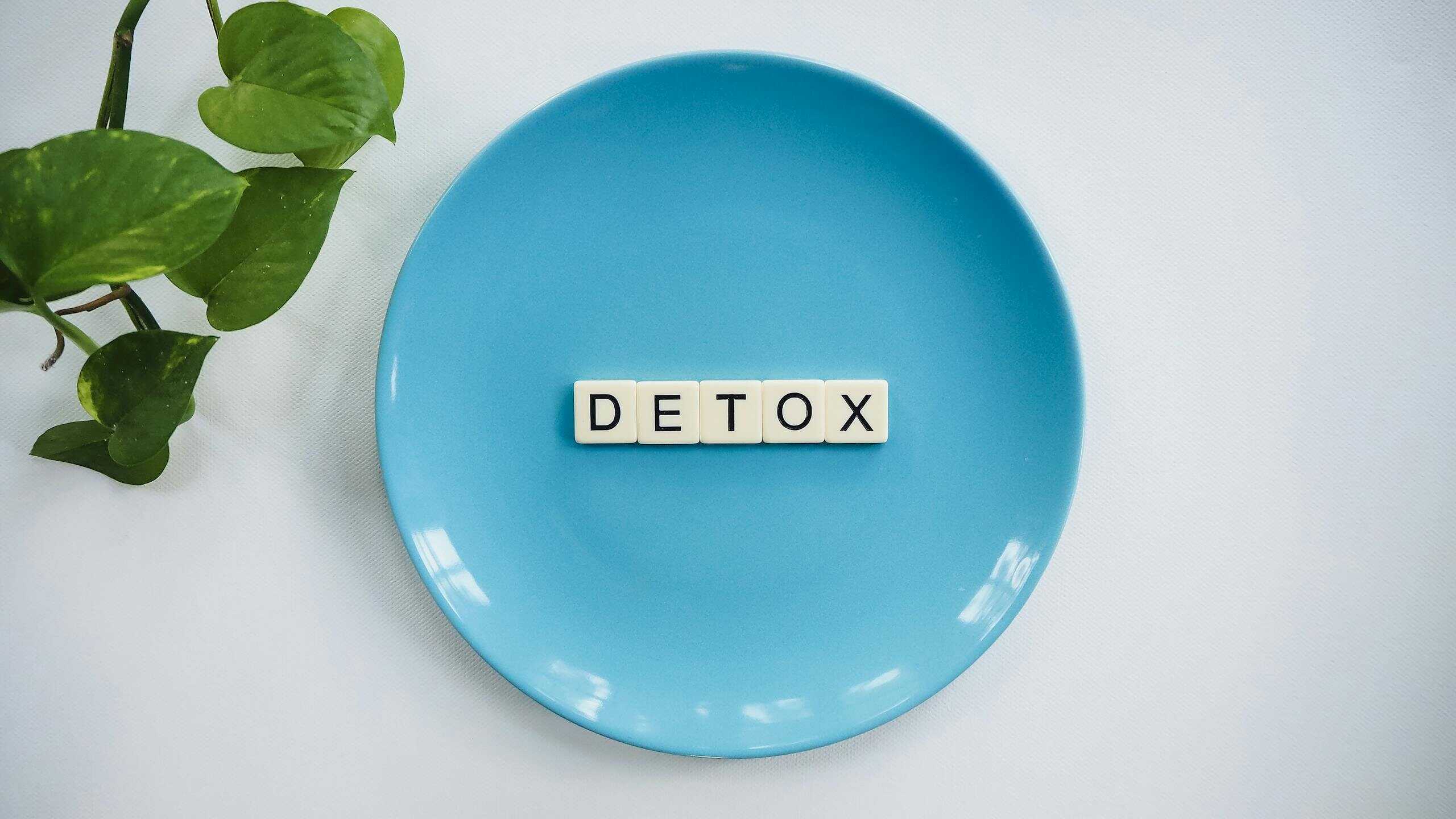5 Reasons Digital Detoxing Feels Like Therapy (Even If You’ve Never Tried a Retreat)
We live in a world where our phones buzz at dawn and glow beside our beds at night. Stepping away from screens—what’s now called a digital detox—might sound intense, but really, it’s about creating space. Space to breathe, to notice, and to remember what it feels like to be present in your own life.
Most of us carry a subtle digital fatigue, even when we’re not fully aware of it. Notifications, scrolling, and the unspoken pressure to stay “plugged in” affect our mood, focus, and stress levels. This isn’t about blaming ourselves, it’s just the reality we live in.
Digital detoxing doesn’t have to mean flying off to a retreat or deleting every app you use. Sometimes the shift starts when you pause long enough to hear the quiet underneath all the noise.
Here are five reasons unplugging can feel surprisingly therapeutic, often in ways that sneak up on you.

1. It Makes You Aware of Your Habits (Without Judging Them)
The first thing you’ll notice when you take a break from your phone isn’t peace—it’s how often you reach for it without thinking. Studies suggest we check our phones up to 96 times per day. Most of those taps and scrolls are automatic.
But instead of judging that, just notice it.
Spiritual teacher Eckhart Tolle talks about observing our thoughts as a form of awakening. The same applies here: when you take a step back, you start to see the urge to scroll when you’re bored, anxious, or just filling time. The noticing itself is healing.
You’re not trying to become someone else—you’re just becoming aware of how you already operate. That kind of gentle awareness is the beginning of meaningful change.
Related: Challenging Unhelpful Thoughts

2. Silence Feels Awkward—But That’s Where the Insight Happens
Once the pings and updates stop, something else often bubbles up: fidgetiness, discomfort, or a vague sense of restlessness. This isn’t a sign detoxing isn’t working—it’s a sign it’s starting to.
We use screens to fill space. We scroll to avoid boredom, uncertainty, or big feelings we might not want to face. But when we stop, we start to feel what’s actually going on inside us.
Solitude has been used as a spiritual practice for centuries—not because it’s easy, but because it reveals what’s hidden. You don’t need to isolate yourself in a forest to access that insight. Sometimes all it takes is an afternoon offline.
3. You Reclaim Time—And Start Noticing What Actually Feeds You
We all say we’re too busy. But the hours we spend on our devices often disappear without us realizing it.
When you take a digital break, time stretches. You might read a book, go for a walk, or just sit with a cup of tea—things that seem simple but feel revolutionary after so much screen time.
It’s not about becoming more productive. It’s about remembering what actually nourishes you. That might be creativity, deep rest, or quiet connection. Digital stillness helps you notice what your mind and body have been craving.
Related: Mindful Movement Yoga
4. Your Nervous System Finally Gets a Breather
Research has shown that excessive screen time increases stress hormones like cortisol, interrupts sleep patterns, and overstimulates our nervous systems. Blue light exposure and constant alerts keep us in fight-or-flight mode far more than we realise.
When you unplug, your body begins to recalibrate. You might sleep better. Your thoughts might slow down. You might feel calmer—not because you’re doing anything new, but because you’ve stopped doing so much.
This is a reminder: your body isn’t a machine. It needs moments of stillness, and digital detoxing—however small—gives it space to breathe.
5. You Remember That Presence Was Always an Option
Maybe the most powerful part of detoxing is this: you realise the calm you were looking for was already there. It was just buried under constant stimulation.
Spiritual teachers like Byron Katie and Ram Dass often said what we seek is already within us. Unplugging doesn’t create peace—it just removes distractions long enough for you to notice it.
You don’t have to quit your job or delete all your apps. You just need to create some space, now and then, to come back to yourself. That kind of presence changes everything.
Related: Anxiety: How to Stop Extreme Overthinking
A Note Before You Reconnect
Digital detoxing isn’t about being perfect. It’s not a challenge to see how long you can last without your phone. It’s a gentle nudge to check in with how your digital life is shaping your inner one.
Maybe you try a few screen-free hours in the evening. Or a “quiet morning” without checking notifications. Start where you are, and go from there.
You don’t need a retreat. You don’t need a guru. Sometimes, coming home to yourself begins with the smallest step: choosing silence over scrolling—just for a moment.





